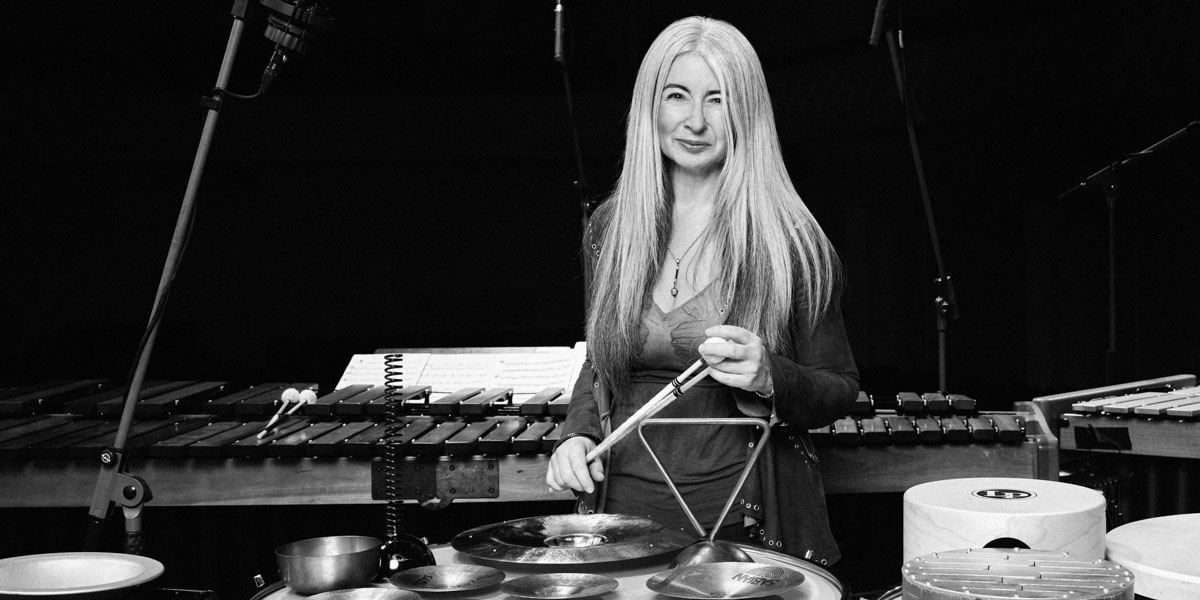Photo: Kaupo Kikkas
I wonder how often we pause to reflect on how much we interpret the world we live in, or how much we translate it? We may see a grassy lawn and accept it as just that…or we may pause, look at it, smell it, note its texture and colors and thickness, and notice life in the blades of grass, so that the humble lawn becomes a true living experience that we interpret. Interpretation allows us to be in the present, where all our senses dance with engagement.
This is my mission: to “teach the world to listen.” Listening is what brings our story alive to all that we do and engage with. Listening is the sense that unites and magnifies all our other senses. All the people I have been influenced by during my life have been amazing listeners; more importantly, they took time to listen to themselves.
My own listening experiences helped make it easy to accept the role of Ambassador for Sistema Scotland. The Sistema program worldwide is all about listening—coaxing forth the stories of each young person, validating their unique journeys, and giving them the platform to express themselves and make a difference to those around them. The aim is for them to listen to one another, to nurture the most important bridge we can all build and cross.
Music and speech are our mediums for this, but we don’t always need a sound in order to listen. Presence is the true instrument we all play. Presence can be as loud or as soft, as busy and complex, or as simple and sparse as we please. Presence allows everything to matter; it is not beholden to budgets or equipment. It requires only the priceless exchange we can all have with one another to inspire, engage, and connect.
We often imagine that music making has to lead to an end result, such as a concert or exam. We practice with the aim of our hard work being “displayed.” But think about what playing an instrument gives to us and those around us. Playing music is remarkably good for our physical and mental well-being. How many times have I felt better after spending 15 minutes on a drum set working on a limb independence conundrum; my head and body buzzes afterwards and I feel ready to conquer the world! Such a conundrum can then be shared with four people at a bus stop, simply using body percussion. We need only think outside of the box to simply allow an entry point to be made.
Sistema programs are all about creating entry points; there are no closed doors. If young people are playing a piece of Vivaldi or Bach, their unique interpretive journey allows them to feel they have also composed the piece they are playing. Translation is about right or wrong—but interpretation is all about curiosity, exploration, and improvisation.
As we navigate the global Covid pandemic, it has been interesting to observe the importance of Sistema programs and similar organizations. I have seen firsthand how Sistema Scotland has been the lifeline to so many youngsters and their families, helping them engage with virtual creative activities to nurture their curiosity and to make sure that each voice has a chance to grow. Technology has certainly opened many avenues of inclusiveness and connectivity. During the pandemic, I have connected with youngsters and community groups from far-flung places around the world—showing them, for example, the wonders of a waterphone! Of course, they can’t physically feel that instrument as they would if they were holding it themselves or standing next to me as I play it. But the fact that they can be introduced to it, and can see and feel my enthrallment, can plant a seed.
It is my aim to encourage us all to be unselfish listeners, so that we can all assist and support each other in interpreting self to self. This applies to all forms of communication, virtual or face to face. We all need opportunities to express our stories and our journeys.
If I could give but one message to everyone, it would be this: Be present to one another. Listen to one another’s words and thoughts as a precious and necessary activity. This is the way to build great listening bridges with all those we encounter, and to make and embrace change. Our youngsters deserve nothing less.
Evelyn Glennie
From an article originally written for the Ensemble News newsletter released on 2nd February 2022 and shared with their kind permission.

